BMW X6 vs Ford Ranger - Differences and prices compared
Compare performance (625 HP vs 292 HP), boot space and price (83600 £ vs 37500 £ ) at a glance. Find out which car is the better choice for you – BMW X6 or Ford Ranger?
Costs and Efficiency:
Price and efficiency are key factors when choosing a car – and this is often where the real differences emerge.
Ford Ranger has a decisively advantage in terms of price – it starts at 37500 £ , while the BMW X6 costs 83600 £ . That’s a price difference of around 46046 £.
Fuel consumption also shows a difference: Ford Ranger manages with 3.10 L and is therefore convincingly more efficient than the BMW X6 with 7.20 L. The difference is about 4.10 L per 100 km.
Engine and Performance:
Under the bonnet, it becomes clear which model is tuned for sportiness and which one takes the lead when you hit the accelerator.
When it comes to engine power, the BMW X6 has a convincingly edge – offering 625 HP compared to 292 HP. That’s roughly 333 HP more horsepower.
In acceleration from 0 to 100 km/h, the BMW X6 is significantly quicker – completing the sprint in 3.90 s, while the Ford Ranger takes 7.90 s. That’s about 4 s faster.
In terms of top speed, the BMW X6 performs distinct better – reaching 250 km/h, while the Ford Ranger tops out at 190 km/h. The difference is around 60 km/h.
There’s also a difference in torque: BMW X6 pulls slight stronger with 750 Nm compared to 697 Nm. That’s about 53 Nm difference.
Space and Everyday Use:
Whether family car or daily driver – which one offers more room, flexibility and comfort?
Both vehicles offer seating for 5 people.
In curb weight, Ford Ranger is slight lighter – 2082 kg compared to 2240 kg. The difference is around 158 kg.
When it comes to payload, Ford Ranger evident takes the win – 1108 kg compared to 695 kg. That’s a difference of about 413 kg.
Who wins the race in the data check?
The Ford Ranger is decisively ahead in the objective data comparison.
This result only shows which model scores more points on paper – not which of the two cars feels right for you.
Costs and Consumption
View detailed analysis
Engine and Performance
View detailed analysis
Dimensions and Body
View detailed analysis
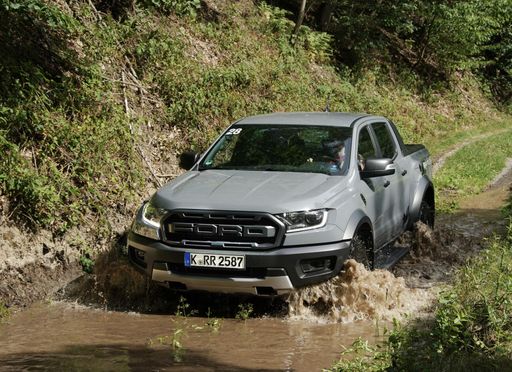
Ford Ranger
BMW X6
The BMW X6 wears its coupe-SUV looks like a tuxedo with oversized shoulders, turning everyday traffic into a catwalk whenever it glides past. It serves up sporty handling and a plush cabin with just enough practicality to keep daily life sane — perfect for buyers who crave drama without completely abandoning common sense.
details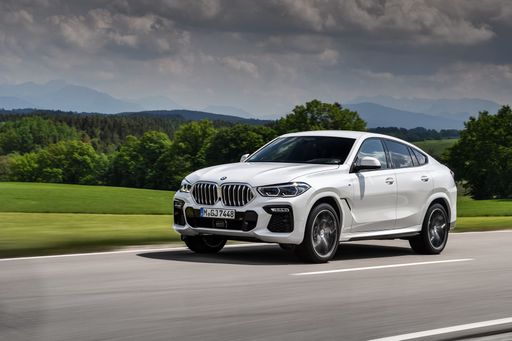
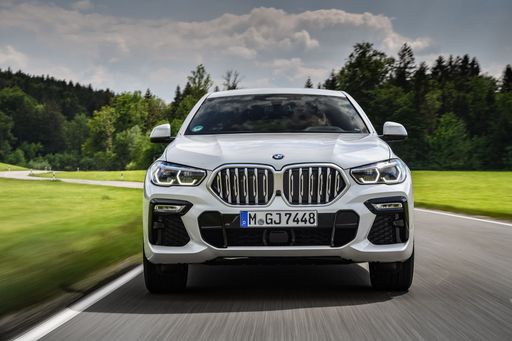
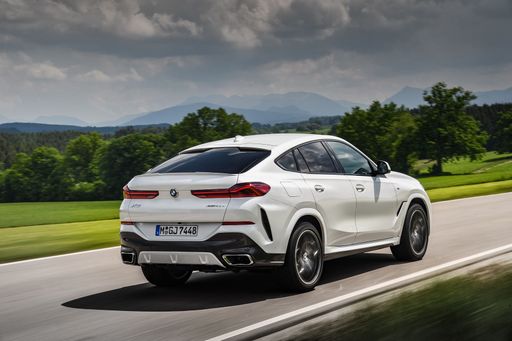

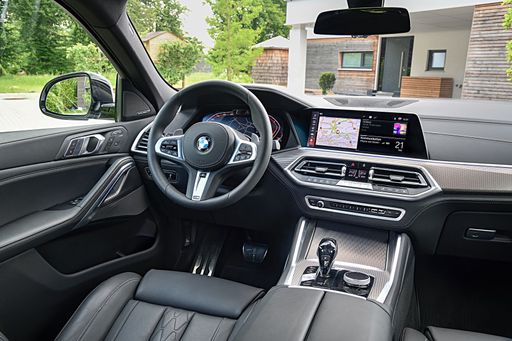
Ford Ranger
The Ford Ranger is a workhorse with the manners of a grown-up pickup—practical, tough, and surprisingly civilized on the road. It’s the sort of truck that laughs at mud on the weekend and performs like a sensible daily driver during the week, making it an easy sell for buyers who want capability without theatrics.
details
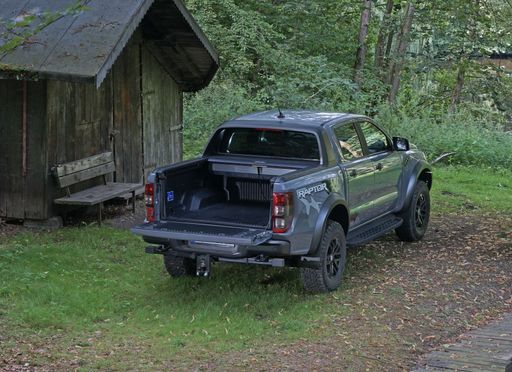
Costs and Consumption |
|
|---|---|
|
Price
83600 - 146400 £
|
Price
37500 - 71900 £
|
|
Consumption L/100km
7.2 - 12.7 L
|
Consumption L/100km
3.1 - 13.8 L
|
|
Consumption kWh/100km
-
|
Consumption kWh/100km
-
|
|
Electric Range
-
|
Electric Range
42 km
|
|
Battery Capacity
-
|
Battery Capacity
11.80 kWh
|
|
co2
188 - 288 g/km
|
co2
70 - 315 g/km
|
|
Fuel tank capacity
83 L
|
Fuel tank capacity
80 L
|
Dimensions and Body |
|
|---|---|
|
Body Type
SUV
|
Body Type
Pickup
|
|
Seats
5
|
Seats
2 - 5
|
|
Doors
5
|
Doors
2 - 4
|
|
Curb weight
2240 - 2445 kg
|
Curb weight
2082 - 2511 kg
|
|
Trunk capacity
580 L
|
Trunk capacity
-
|
|
Length
4960 mm
|
Length
5370 - 5420 mm
|
|
Width
2004 - 2019 mm
|
Width
1918 - 1968 mm
|
|
Height
1700 mm
|
Height
1868 - 1922 mm
|
|
Max trunk capacity
1530 L
|
Max trunk capacity
-
|
|
Payload
595 - 695 kg
|
Payload
676 - 1108 kg
|
Engine and Performance |
|
|---|---|
|
Engine Type
Petrol MHEV, Diesel MHEV
|
Engine Type
Diesel, Petrol, Plugin Hybrid
|
|
Transmission
Automatic
|
Transmission
Manuel, Automatic
|
|
Transmission Detail
Automatic Gearbox
|
Transmission Detail
Manual Gearbox, Automatic Gearbox
|
|
Drive Type
All-Wheel Drive
|
Drive Type
All-Wheel Drive
|
|
Power HP
298 - 625 HP
|
Power HP
170 - 292 HP
|
|
Acceleration 0-100km/h
3.9 - 6.1 s
|
Acceleration 0-100km/h
7.9 - 12.1 s
|
|
Max Speed
250 km/h
|
Max Speed
180 - 190 km/h
|
|
Torque
540 - 750 Nm
|
Torque
405 - 697 Nm
|
|
Number of Cylinders
6 - 8
|
Number of Cylinders
4 - 6
|
|
Power kW
219 - 460 kW
|
Power kW
125 - 215 kW
|
|
Engine capacity
2993 - 4395 cm3
|
Engine capacity
1996 - 2993 cm3
|
General |
|
|---|---|
|
Model Year
2025
|
Model Year
2022 - 2025
|
|
CO2 Efficiency Class
G
|
CO2 Efficiency Class
G, B
|
|
Brand
BMW
|
Brand
Ford
|
What drivetrain options does the BMW X6 have?
The BMW X6 is available as All-Wheel Drive.




